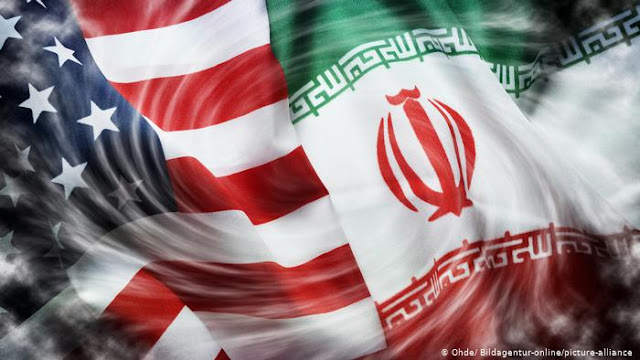US sanctions tank Iran's economy ، 03/24/2021, 16.52IRAN – UNITED STATES After Trump’s “maximum pressure” policy, Washington and Tehran struggle to reconnect. The economy lost almost 5 percentage points in 2020. Billions of oil dollars are stuck in Chinese, Iraqi and South Korean banks. Unemployment is at 12.4 per cent while the fiscal deficit is rising.
After four years of head-on confrontation, Tehran and Washington are now timidly looking at ways to return to the negotiating table for a full restoration of the Joint Comprehensive Plan of Action (JCPOA), which Iran signed in 2015 along with some of the world’s major powers.
For Tehran, sanctions are a crucial and their easing is a precondition for any negotiations.
However, Iranian authorities have progressively violated the terms of the agreement by easing restrictions on nuclear activities.
The first steps came in 2019 after then-US President Donald Trump pulled out of the JCPOA in May 2018 and slapped the harshest sanctions in history on Iran, which tanked the Iranian economy as noted by a recent report by US network CNBC.
Last year, Iran's economy contracted by 4.99 per cent, following a steady trend that began in 2017.
To understand the importance of the nuclear deal, one need only look at the 2016 data, which show a growth rate of 12.5 per cent, but the deal’s benefits were short-lived and Trump's arrival in the White House disrupted everything.
The International Monetary Fund (IMF) expects Iran’s GDP to grow by 3 per cent this year.
But Trump’s policy of maximum pressure has dealt a severe blow to oil production and exports, which have fallen sharply.
“There are billions of dollars sitting in banks in Iraq and China and South Korea … that Iran cannot get its hands on due to the sanctions,”
said Elliott Abrams, former US special representative for Iran during the Trump administration and now a senior fellow for Middle Eastern Studies at the Council on Foreign Relations (CFR).
Crude oil exports are expected to decline in 2021 as well, so is trade with the Islamic Republic, after exports and imports have plunged.
In fact, in addition to crude oil, sanctions have dealt a severe blow to Iran’s metal industry, an important source of export revenue for the country.
The IMF estimates a trade deficit of US$ 3.45 billion for 2020, against a surplus of US$ 6.11 billion IN 2019.
Another factor is inflation, as well as the steady decline in the national currency that began in 2018 and which only now seems to have entered a new phase of stabilisation, this according to Stratfor analyst Matthew Bey.On the black market, the rial is trading at 250,000 for a dollar, far from the official rate of 42,000 used for most imported goods.
A weak currency makes imports more expensive, and high inflation means that the cost of living is rising at a time when people are already struggling to survive and the labour market is weak.
The unemployment is also set to rise, with 12.4 per cent of the working population estimated to be out of work this year, according to IMF estimates.
Lastly, the fiscal deficit is widening as the government continues to spend beyond its means.
This is pushing up the national debt and is threatening the economy’s recovery capacity in any post-pandemic phase.
The distribution of (scarce) resources under the current president, the moderate Hassan Rouhani, is also a major issue. His focus has been on families, income support and unemployment.
But the radical factions associated with the Supreme Leader, Grand Ayatollah Ali Khamenei, are more interested in funding the Revolutionary Guards (Pasdaran), Hezbollah and regional militias.
Ultimately, for Iran’s economy to recover it needs a new agreement between Washington and Tehran and the easing - if not the lifting - of sanctions. This does not seem possible for now since the two sides are still far apart.
Meanwhile, Iranians are set to go to the polls in presidential elections in June with radical factions as favourites.
The latter remain hostile to the United States and the JCPOA. The Islamic Republic seems to want to “resist” economic pressure in order to be in a better position before engaging the Biden administration in negotiations
❤️# بر اندازیم #تيك_تاك_سرنگوني #قیام_تنها_جوابه
️❣️ # ️ ️️️ مجاهدین_خلق ایران #ایران # کانونهای شورشی
🌳# MaryamRajavi #IranRegimeChange
🌻🍒🌳 پیوند با حساب توئیتری BaharIran@7

